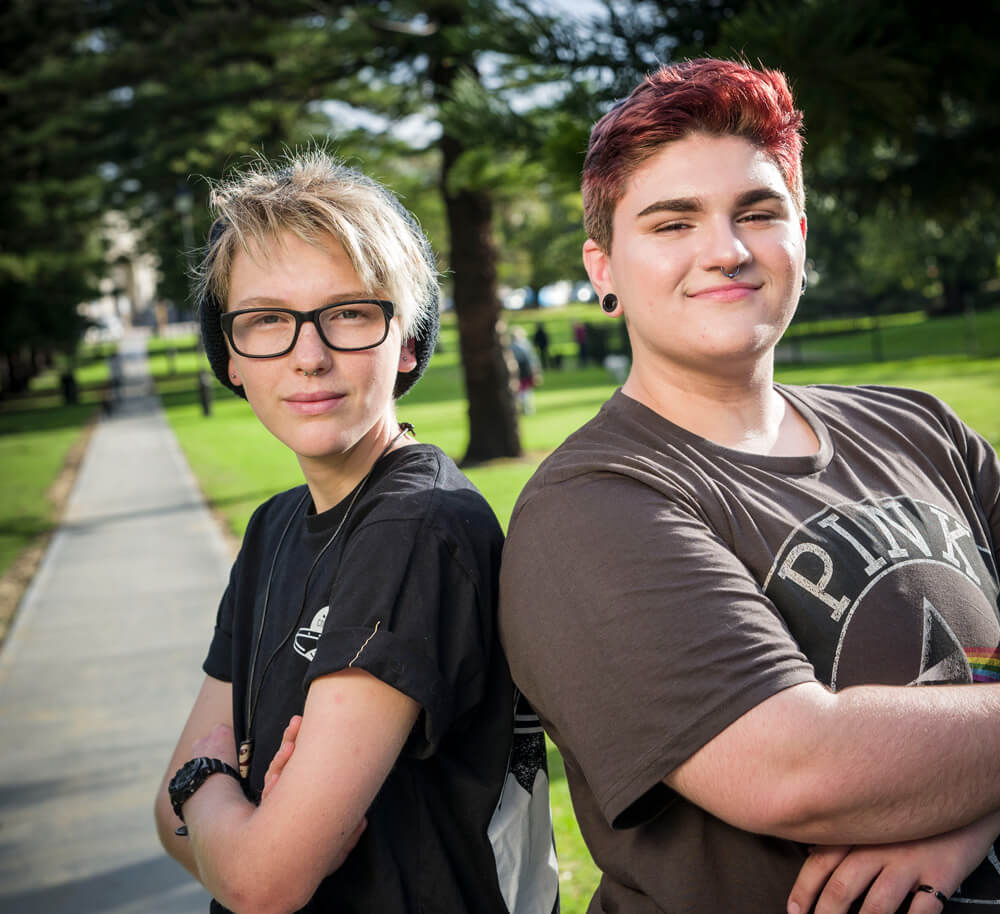Search
Research
Dietary intake in population-based adolescents: Support for a relationship between eating disorder symptoms, low fatty acid intake and depressive symptomsIn the eating disorder sample but not the control sample, omega-3 and omega-6 fatty acid correlated significantly and negatively with eating disorder...
Research
A time series analysis of presentations to Queensland health facilities for alcohol-related conditions, following the increase in 'alcopops' taxWe measured changes in admissions for alcohol-related harm to health throughout Queensland, before and after the tax increase in April 2008.
Research
Resilience amongst Australian Aboriginal youth: An ecological analysis of factors associated with psychosocial functioningWe investigate whether the profile of factors protecting psychosocial functioning of high risk exposed Australian Aboriginal youth are the same as those...

News & Events
Trans Pathways breaks down barriers for Trans YouthWhen Trans Pathways ambassador Drew, 17, came out as trans three years ago, the biggest hurdle for him was the availability of services and the time it took to access support.

News & Events
Young people suggest anti-smoking style interventions for energy drinksResearchers conducted a series of group interviews with young people to find out how much they knew about energy drinks and the consequences of drinking them.
Research
Understanding Current Staff Experiences, Practices and Needs in Supporting Young People with Neurodevelopmental Disorders in the Queensland Youth Justice SystemYoung people with neurodevelopmental disorders are overrepresented in the youth justice system and face many disadvantages due to their impairments. The current study investigated what factors predict and contribute to the behavior of youth justice professionals working in the Queensland (QLD) youth justice system, utilizing a behavior change wheel framework.
Research
Intersex adolescents seeking help for their depression: the case study of SPARX in New ZealandSPARX is a computerized cognitive behavioral therapy self-help program for adolescent depression that is freely available in New Zealand. At registration, users identify themselves as either male, female, intersex, or transgender. We aimed to describe the mental health of adolescent intersex users. A secondary analysis of SPARX usage data over 5 years.
Research
Adiposity associated DNA methylation signatures in adolescents are related to leptin and perinatal factorsEpigenetics links perinatal influences with later obesity. We identifed differentially methylated CpG (dmCpG) loci measured at 17 years associated with concurrent adiposity measures and examined whether these were associated with hsCRP, adipokines, and early life environmental factors. Genome-wide DNA methylation from 1192 Raine Study participants at 17 years, identified 29 dmCpGs associated with body mass index, 10 with waist circumference and 9 with subcutaneous fat thickness.
Research
A randomized controlled evaluation of a secondary school mindfulness program for early adolescents: Do we have the recipe right yet?Further research is required to identify the optimal age, content and length of mindfulness programs for adolescents in universal prevention settings.
Research
Puberty suppression in transgender children and adolescentsWe review the available empirical evidence on the cognitive, physical, and surgical implications of puberty suppression in gender-incongruent children and adolescents
